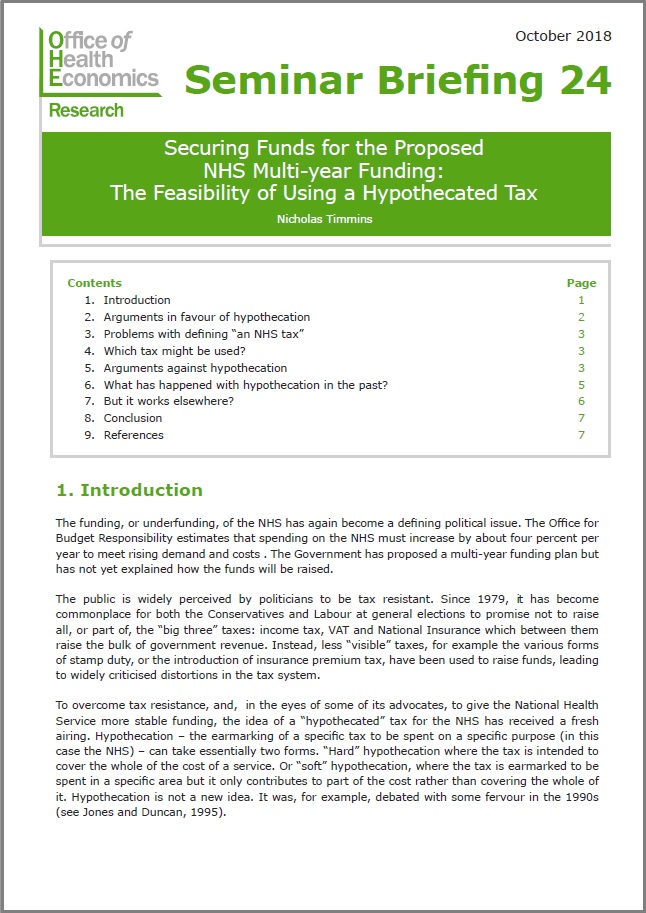This OHE publication by Nick Timmins, a senior fellow at the Institute for Government and the Kings Fund, sets out arguments in favour and against. It…
This OHE publication by Nick Timmins, a senior fellow at the Institute for Government and the Kings Fund, sets out arguments in favour and against. It is based on the seminar he gave at OHE in July 2018.
This OHE publication by Nick Timmins, a senior fellow at the Institute for Government and the Kings Fund, sets out arguments in favour and against. It is based on the seminar he gave at OHE in July 2018.
In June 2018 the UK Government announced an increase of 3.4% per annum in spending on the NHS in England for each of three years. It indicated that taxes will rise to pay for this. Debate has increased as to whether a separate (hypothecated) tax should be introduced to fund the NHS. The Kings Fund has published this year on the topic. OHE published an academic review sometime ago.
This OHE publication by Nick Timmins, a senior fellow at the Institute for Government and the Kings Fund, sets out arguments in favour and against. It is based on the seminar he gave at OHE in July 2018. The issues he explores include:
- The argument that hypothecation will bring greater stability, transparency and public support;
- Which tax(es) might be suitable?
- Possible distortions in public expenditure that might result;
- Dealing with shortfalls and surpluses;
- UK experiences of revenue hypothecation in the past, distinguishing soft (non-binding) approaches such as Vehicle Excise Duty, and hard (binding) pots such as National Insurance, neither of which have held.
He concludes by quoting a John Appleby blog which argues that the key decision is to agree (or not) to spend more money on the NHS. Creating a new tax is a distraction from this.
